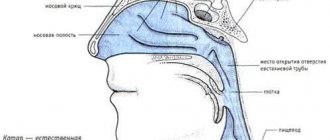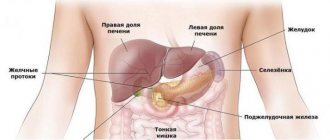The hot summer will soon end and the weather will begin to change dramatically. Many people in spring and autumn do not tolerate temperature changes well, reacting to it with outbreaks of diseases, deterioration of well-being and bad mood. Doctors believe that weather dependence is not a disease, but an alarm bell signaling that not everything is in order in the body. Although people in good health often react to changing weather and magnetic storms with worsening mood and decreased attention.
Conditions affecting well-being
Weather-sensitive people react sharply to weather anomalies, which manifest themselves in:
- solar flares and magnetic radiation;
- low concentration of oxygen in the air;
- low (high) air temperature;
- increased (low) air humidity;
- sudden changes in atmospheric pressure.
Weather dependence is especially difficult for adolescents, the elderly, women during menopause, and people with chronic diseases.
Patients with cardiovascular, bronchopulmonary diseases, asthma, vegetative-vascular dystonia, as well as those who have suffered head and chest injuries do not tolerate weather vagaries well.
The situation is getting worse
Now it is important to realize how humans influence nature. This may be the first step towards the changes necessary to improve the situation. Scientists have long proven that the deterioration of the environmental situation on the planet is directly related to the prevailing economic system existing in the world and the destruction of the intellectual environment. Environmental issues and climate change must be considered together. Only in this case there is a chance to change something.
The trend of recent decades is disappointing: each next generation enters life in worse economic conditions than those before it. Damage to nature is intensifying, and the health of young people and adolescents is primarily affected by this, this is how humans influence the weather.
The weather forecast is currently becoming one of the most threatening and unpleasant news. Every year there are more and more weather anomalies in the world. Weather that would correspond to climatic norms is not observed anywhere else. Almost every new winter becomes abnormally warm, breaking all records. Typhoons and floods occur everywhere, and drought affects large areas. All this is largely due to the negative impact of humans on the weather.
Remedies for weather dependence
During weather changes, you need to pay special attention to your well-being and the health of your loved ones.
You should take a contrast shower, increase your rest time (it is recommended to take 10-minute breaks every hour, sleep at least 8.5 hours), regularly take the medicine prescribed by your doctor and measure your blood pressure.
When atmospheric pressure changes
When the atm/d decreases, doctors recommend replenishing the ionic balance in the body, for which you can eat a pickled vegetable or a sandwich with salted fish. On such days, it is useful to drink a lot of water, green tea or hibiscus.
With increased atmospheric pressure, weather-dependent people experience anxiety, irritability, and insomnia. To stabilize the condition, official medicine recommends taking valerian drops, motherwort during the day, and drinking warm milk or chamomile tea at night.
During any changes in atmospheric pressure, you should avoid stress and increased physical activity, stop smoking, as well as taking tonic and alcoholic drinks.
When the weather changes
With sudden warming after long cold weather, atmospheric pressure also drops sharply, and the amount of oxygen in the air decreases. On such days, the health of hypertensive patients, asthmatics and people with chronic heart and vascular diseases worsens.
To get through this period relatively painlessly, doctors recommend getting more rest, reducing salt and liquid intake, and avoiding caffeine-containing drinks altogether.
Sudden warming can cause weakness, headaches, and drowsiness in weather-sensitive people due to lack of oxygen. To cheer up, you can drink tea with adaptogen plants in the first half of the day:
- rhodiola rosea,
- incense,
- Chinese lemongrass.
Regular consumption of such drinks improves body tone and strengthens the immune system.
People with kidney problems, heart problems, hormonal disorders and slow metabolism are sensitive to increased temperature. On hot days they feel lethargic; they are worried about insomnia, shortness of breath, and sweating.
To support yourself on hot days, you should include foods rich in potassium and magnesium in your diet (bananas, raisins, dried apricots, pumpkin, seaweed, fatty sea fish). It is useful to drink infusions of thyme, motherwort and mint.
To prevent mucous membranes from drying out, you need to humidify the air in the apartment and rinse your nose more often. You can buy an air humidifier or place several containers of water in the room and place a damp towel on the radiator.
Solar radiation
The light falling on the surface of the planet plays a vital role in the climate of the area. The more radiation hits an area of the Earth, the higher the average temperature there. The intensity of radiation primarily depends on latitude. Regions located near the equator receive more heat, while polar regions experience a shortage of solar energy. It is for this reason that they are the coldest areas on the planet.
Why does less light fall on the poles? The amount of light energy per unit area depends on the inclination of this area. The sun's rays fall on the equator at a right angle, and on the poles at an acute angle, which is why the equatorial regions warm up better.
The length of daylight hours in the region also plays a big role. At the poles, at some times of the year there are polar nights, and at others - polar days, when light falls on the surface around the clock. At the equator, there are no such fluctuations in daylight hours. As a result, in the polar regions the climate varies more depending on the season, while at the equator the difference between winter and summer temperatures is negligible.
The amount of incoming solar energy is also affected by cloudiness in the region. Clouds reflect sunlight due to white light, lowering the temperature of the area.
Herbal teas to improve health
Nature generously shares its fruits with us. Simple in composition, but unique in action, natural preparations are one of the best options to support the body during weather anomalies.
With VSD
A remedy for the manifestations of vegetative-vascular dystonia: headaches, dizziness, lethargy and fatigue.
Mix in equal proportions the fruits of hawthorn and rose hips, honey root, St. John's wort and chamomile. Pour 15 g of the mixture into a glass of cold water and leave for 4 hours. After this, heat in a water bath for 10 minutes. The resulting decoction should be drunk throughout the day.
St. John's wort-angelica tea for low blood pressure
To brew it, 10 parts of St. John's wort and 1 part of angelica are placed in a fireproof container and placed in a hot oven for 3 hours. The resulting mass is used to brew tea.
General strengthening collection
Consists of equal parts of rue, hyssop, leuzea root, St. John's wort and eleutherococcus. The mixture is poured with 2 cups of boiling water, covered with a warm towel and left for 5 hours. Drink half a glass 4 times a day.
With sudden changes in temperature and humidity
A collection of 3 parts birch leaves and chamomile, 2 parts horsetail and oregano, 1 part caraway seeds helps stabilize the condition and support the body. Brew 2 tablespoons of the mixture with a glass of boiling water and leave for 2 hours. The strained solution is drunk 2 times a day 20 minutes before meals.
Herbal infusions are especially good if you start taking them a few days before the onset of magnetic storms or weather changes and drink them over a long period of time.
It will help you survive weather disasters and provide psychological comfort. To do this, you need to communicate more often with pleasant people, dress according to the weather so that it is not cold or hot, move more, take walks and do what you love. Then no natural anomalies will be able to cause severe harm.
Minor climatic factors
In addition to those described above, there are other factors that have a significant impact on the climate of certain regions of the world or the planet as a whole.
Distance from the ocean
The region's climate is greatly influenced by its distance from the seas and oceans. The fact is that water has a huge heat capacity, so in the summer months it cools the coastal areas, and in the winter it warms them. Because of this effect, the same latitude may experience different average January temperatures. For example, at a northern latitude of 60°, the January temperature in St. Petersburg is -8°C, and in the area of the Lena River it drops to -40°C. Continental areas also receive less rainfall. As a result, maritime and continental climates are distinguished.
The proximity of the oceans also affects the direction of the winds. In tropical areas there are winds called monsoons. In summer they blow from the ocean to the mainland, since the air above the oceans is colder. In the winter months, they change their direction to the opposite.
Ocean currents
Ocean currents also have a strong influence on climate. An example is the Gulf Stream, which carries warm waters from the Atlantic to the Arctic Ocean. However, as it penetrates into the Arctic, it loses its strength. Therefore, on the Arctic coast of the Barents Sea the climate is milder than, for example, in the Laptev Sea.
Underlying surface
The weather is influenced not only by the height of the relief, but also by the nature of the underlying surface. Snow and ice reflect most of the sunlight that hits them, causing the glaciers to cool further. Largely because of this, the climate in Antarctica is much colder than at the North Pole of the planet. The reflectivity of a surface is called albedo.
Human activity
Finally, in recent centuries, humans have begun to have a significant influence on the climate. It is known that in large metropolitan areas the average air temperature is slightly higher than in the surrounding rural areas. This is due to the heating of a large number of houses and the active use of electricity and transport. Man can also drain and irrigate areas of the Earth, build forest protective fences, plow the territory, cut down forests, and create huge reservoirs. All these activities lead to climate change in certain regions. On a global scale, humanity emits huge amounts of carbon dioxide and other gases into the atmosphere, which create the greenhouse effect and cause global warming.
Didn't find what you were looking for? Use the site search form
A THIRD OF HUMANITY SUFFERS FROM THE WEATHER
Even the ancients noticed that changes in weather significantly affect a person’s well-being. Thus, the ancient Germans called pain in the joints that occurs during a damp, cold period “weather pain,” and Hippocrates spoke about weather dependence as early as 400 BC. e. In Tibet, it was believed that all diseases were somehow related to weather phenomena.
In his voluminous work “The Sick and the Weather,” its author, William Ferdinand Petersen, directly stated that our well-being depends even on changes in the direction of the wind. He believed that the continuous change of warm atmospheric fronts to cold ones and vice versa is the main reason for such a dangerous influence of weather on the human body, when even with small changes people develop lethargy and ailments.
“If there is an organism created as an effective resonator of cosmic events,” Petersen wrote, “it is the human body.”
A change in the general condition of the body under the influence of changing weather is called meteopathy (Greek “meteora” - celestial phenomenon and “pathos” - illness, suffering). The body's increased sensitivity to weather changes is called meteosensitivity. According to various sources, from a third to 40% of people on the planet are weather sensitive. Among older people and those suffering from certain diseases, up to 80% can react negatively to changes in weather conditions.
Influence on weather
As we can see, influencing the weather is much easier than influencing the climate. Since in this case we will be talking about short-term and local changes. Often the weather is changed for a specific, completely utilitarian purpose, for example, to disperse the clouds over the city before a holiday.
There are many of these methods; people already know very well how to control the weather. The main technology that is used most often is to actively influence the clouds. The most well-known method is to “seed” them with chemical reagents. Due to this, you can force the cloud to dissipate or, conversely, rain.











